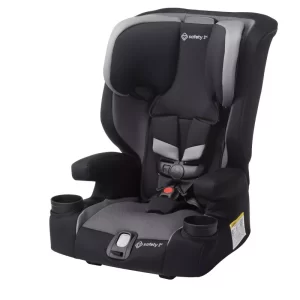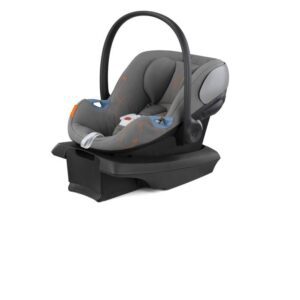6 Things to Do When Your Car Is Stuck in Snow

Getting stuck in the middle of a big pile of snow or on a stretch of ice can be an all-too-common occurrence during the cold winter months. Luckily, we have a few tips and tricks that can get your car free in no time, even if you don’t have one of the best vehicles for winter driving. Follow these six tips below to get a car unstuck in snow:
1. Clear a path around your tires
Try to dig snow and ice away from the drive tires. You want to free up a few feet in front of and behind the tires so you can move the car back and forth. This is particularly important if your tires aren’t winterized, or if you haven’t taken steps to prepare your vehicle for the winter. Be sure to also dig out any snow under the front or middle of your car that is higher than its ground clearance.
Of course a snow shovel makes this much easier, so try and store one in your trunk if you plan on driving in snowy conditions.
2. Rock your car free of the snow
Carefully switching from drive to reverse can help dislodge some of the snow around your wheels. “You go into drive, then reverse, then repeat,” says Mark Osborne, who oversees Michigan Technological University’s Winter Driving School. “But you have to be careful not to wreck your transmission. I put my foot on the brake at the peak of each ‘rock,’ so the car is motionless when I change gears. It’s also helpful to shift to neutral for a second before making the transition.”
3. Don’t floor the gas
You’ll always be tempted to floor it if you’re stuck in snow or ice, but don’t. Go easy on the pedal to give the vehicle just a little gas for a moment, then let off. Repeat to enhance the needed “rocking” motion. It’s momentum that sets you free, not power.
4. Add traction under your tires
If you still can’t get your car free, you can next try and gain traction under your wheels. Things such as sandbags, salt, dirt or even kitty litter can be used when your car is stuck in snow. Throw several handfuls under your tires for improved traction, then try the gas again.
It is also important to remember to turn off traction control if you are stuck in snow. This is one of several safety features that can help you keep control of your vehicle if you hit ice on the road, but leaving it on while stuck in snow is a different story. Traction control prevents wheelspin, which is the rotation of a vehicle’s wheels without traction, and can sometimes help you get your car out of snow.
5. Get others to help push your car
If you have other people in your car, or friendly onlookers who can help, simply pushing your car out of the snow can be an easy solution. Gently press the gas while the car is being pushed to add additional momentum. Safety always comes first, so make sure you’re in forward gear and the ground isn’t too slippery for helpers to push. Using snow chains can also help create traction under your tires, making it easier to move through snow and ice.
6. Ask for help
If all else fails and you can’t seem to figure out how to get your car unstuck from snow, calling for help is your next best bet. Nationwide offers 24-hour roadside assistance services that can help you in getting a car out of snow, jump starting a dead battery, filling an empty gas tank, and more.
Always keep a cool head
Whether you’re stuck in snow or hit a stretch of ice, try and remain calm. Don’t do anything abrupt, like slamming the brakes. “If you do that, you’ll transfer your vehicle’s weight to your front wheels,” Osborne says. “That lightens up the rear, making it likely that your rear end will spin.” Instead, Osborne says, gradually let off the gas and hold the steering steady until you’ve cleared the ice.
Your car getting stuck isn’t the only concern when winter comes along. Snowy and icy pavement can lead to accidents. To help you navigate inclement weather this winter, check out our safety tips for driving in the snow.
24-Roadside Assistance services are provided by or through Agero.
Disclaimer:
The information included is designed for informational purposes only. It is not legal, tax, financial or any other sort of advice, nor is it a substitute for such advice. The information may not apply to your specific situation. We have tried to make sure the information is accurate, but it could be outdated or even inaccurate in parts. It is the reader’s responsibility to comply with any applicable local, state, or federal regulations. Nationwide Mutual Insurance Company, its affiliates and their employees make no warranties about the information nor guarantee of results, and they assume no liability in connection with the information provided. Nationwide, Nationwide is on your side, and the Nationwide N and Eagle are services marks of Nationwide Mutual Insurance Company. © 2021 Nationwide.






